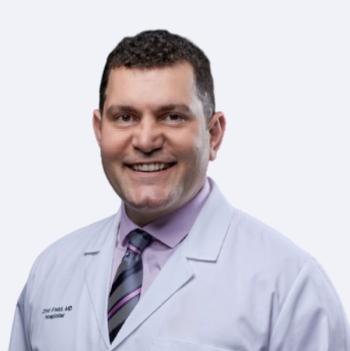
Fallout of the CVS/Aetna merger
What the CVS-Aetna deal means for PCPs
In early December,
CVS operates a chain of pharmacies and retail clinics that Aetna could now use to provide care directly to patients, potentially offering employers one-stop shopping for health services for their workers. The deal still needs to be approved by government regulators.
HOT TOPIC:
Jamie Thomas, executive vice president of The Medicus Firm, a Dallas, Texas-based physician recruiting firm, believes the proposed deal could prompt further consolidation in the primary care arena and will create further competition for primary care physician (PCP) practices.
“More traditional medical practices could be forced to increase hours and/or work weekends to compete with the convenience the walk-in clinics offer,” he says.
That could result in a lack of continuity in primary care, and the eventual erosion of the PCP/patient relationship, which he says has proven to positively affect outcomes.
Matthew Mintz, MD, FACP, an internist in Bethesda, Maryland, worries that CVS may incentivize Aetna patients not only to use Caremark/CVS PBM, but also CVS retail pharmacies.
“This may give few options of where patients can get their medications and by expanding the footprint of the CVS/Caremark formulary, leave providers with fewer choices of medications to treat their patients with,” Mintz tells Medical Economics in an email. “CVS may also incentivize Aetna patients to get their immunizations from a CVS retail store. While that may help patients a little, and immunizations are not a huge money maker for many PCPs, that’s a lost revenue opportunity for PCPs.”
POPULAR ONLINE:
Another concern is that public statements about the proposed merger by executives indicate that the company plans to expand healthcare delivery in CVS Minute Clinics. Mintz says that while this could in theory increase after-hours access and decrease emergency department visits, Minute Clinics thus far have not shown to be able to deliver a high level of care.
“You will hear countless stories from PCPs regarding how a patient was misdiagnosed in a Minute Clinic, and then had to see the PCP anyway to deal with the consequences,” he says. “In my experience as a provider, going to a Minute Clinic often results in a prescription. I think there is a potential conflict of interest when the employer of a health practitioner is a pharmacy that profits off prescriptions.”
Mintz adds that if Aetna is providing care at a CVS retail pharmacy at a lower cost than a community PCP, the merged company could incentivize patients to get primary care at the CVS. For example, co-pays for sore throat and chronic care (asthma, diabetes, HTN) done by a nurse practitioner at the Minute Clinic might be free for Aetna patients, but $20 when performed by an in-network provider. This could take revenue away from PCPs if incentives like these are put in place.
TRENDING:
“This is a big deal,” Mintz says. “Except for Kaiser (for the most part), insurance companies are not generally the providers of healthcare. While in theory, a group of NPs could set up their own private practice minute clinic and then contract at even lower rates, this just doesn’t happen. CVS Minute Clinic is a very low cost provision of a limited number of healthcare services. Rather than go see their doctor for common things, it would cost Aetna less if their patients went to a Minute Clinic first.”
Not only would Aetna have a lower cost of care for their covered patients, but they will profit from that care, and if the NP prescribes antibiotics or even OTC medications, they profit even further.
Is there a bright side?
Paula Muto, MD, FACS, a vascular and general surgeon in Lawrence, Massachusetts, says the primary care world has splintered, with burdensome regulation having usurped the doctor’s time with patients.
“If walk-ins take away some of the burden of over-crowded waiting rooms, then there will be more time for patients who need them,” she says. “However, primaries in networks will be frustrated if patients don’t follow the prescribed insurance rules. Because the reimbursements are tied to patient compliance, they will be penalized. This will lead to more stringent requirements and either a mass exodus of participating doctors or the expansion of alternatives like concierge practices, telemedicine and direct primary care.”
POPULAR ON OUR SITE:
Ryan Marling, healthcare research associate with the Clayton Christensen Institute, says that rather than competing with CVS Health clinics, this merger is an opportunity for PCPs to coordinate with the retail health space, which CVS has done with major health systems such as the Cleveland Clinic.
“As leaders of these caregiving teams … PCPs will play an important role in coordinating and tailoring team structures and processes to the health needs of individual patients,” he says. “If implemented effectively, team-based care arrangements will ultimately help PCPs practice at the top of their license, enabling them to focus on strengthening patient relationships and constructing cost-effective care regimens for those with multiple chronic conditions.”
Newsletter
Stay informed and empowered with Medical Economics enewsletter, delivering expert insights, financial strategies, practice management tips and technology trends — tailored for today’s physicians.






